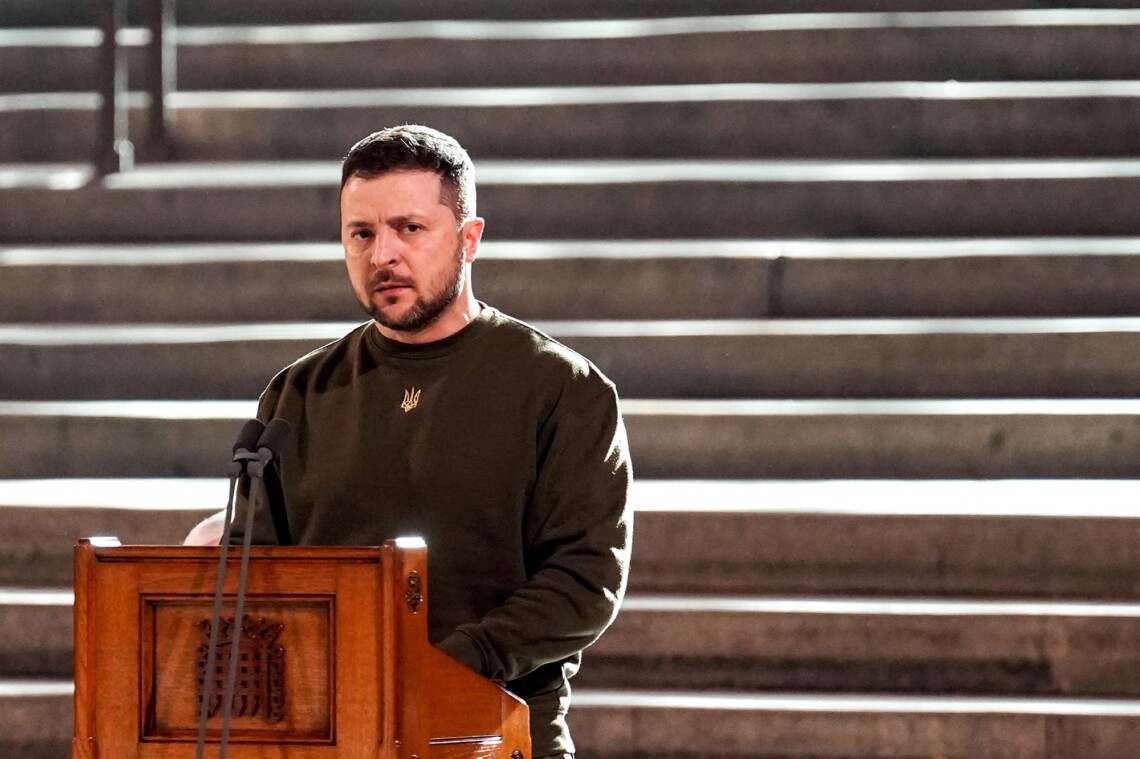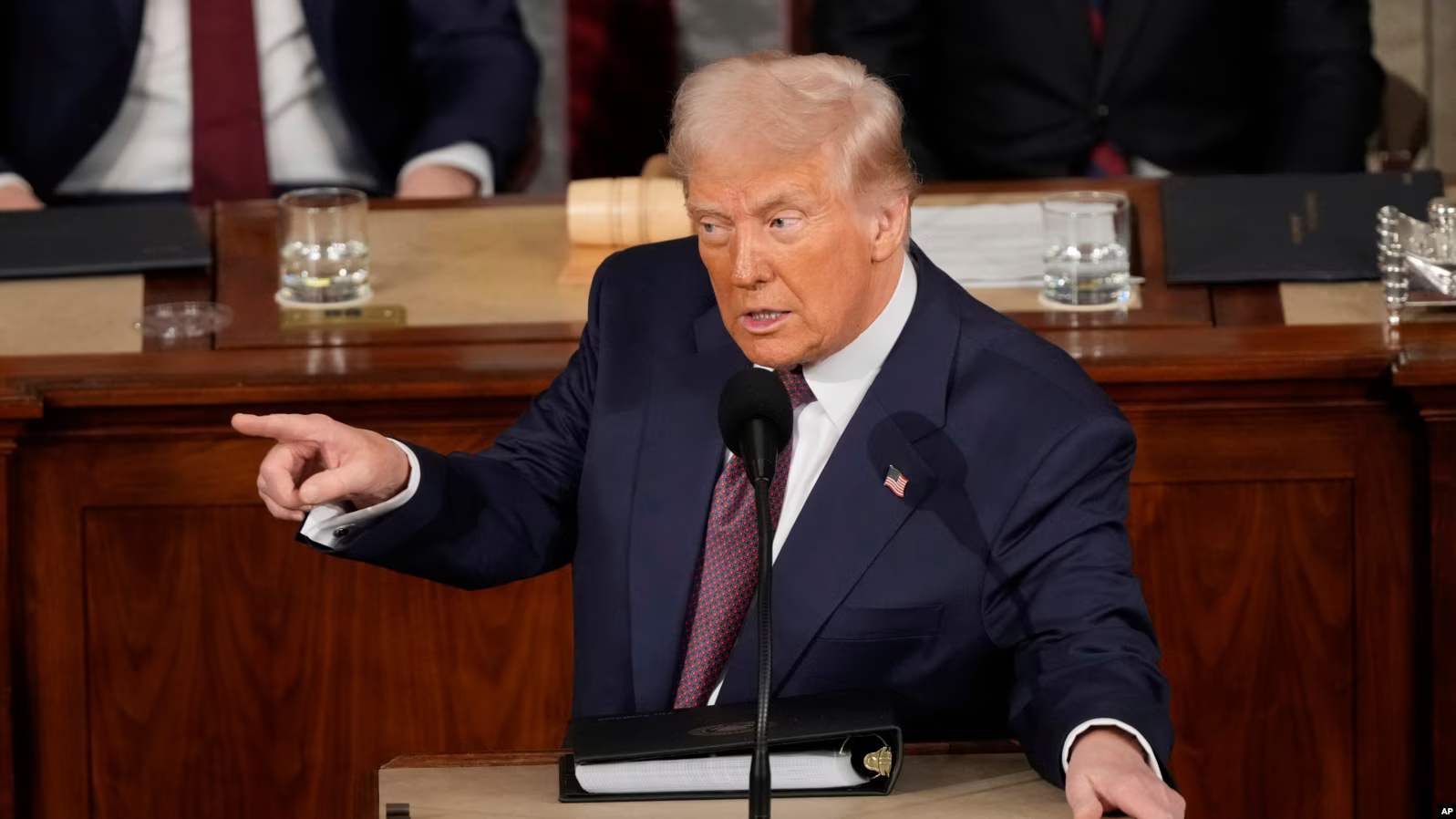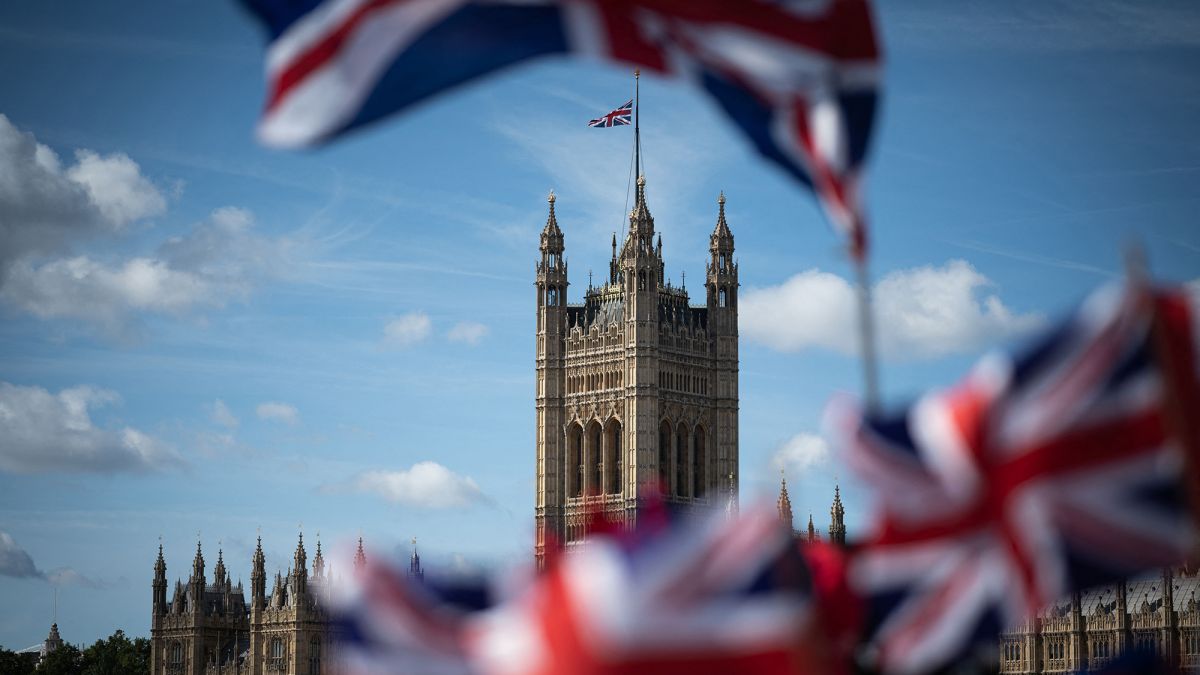“The meeting scheduled for this day in London, which was to be an next step towards discussing peace in Ukraine, was actually breaking. Formally – it is “transferred to another time” because key participants (except the Ukrainian delegation) have abandoned the visit. In fact, it is torn because the parties simply could not find a compromise around the ceasefire. Ukraine insisted on unconditional recognition”, – WRITE ON: ua.news
The meeting scheduled for this day in London, which was to be an next step towards discussing peace in Ukraine, was actually breaking. Formally – it is “transferred to another time” because key participants (except the Ukrainian delegation) have abandoned the visit. In fact, it is torn because the parties simply could not find a compromise around the ceasefire.
Ukraine insisted on the unconditional recognition of territorial integrity, Russia – on “realistic conditions” (that is, the recognition of their occupation of part of Ukrainian lands), the United States offered its peace plan, and Britain and France – its own intermediary schemes in its own interests. But none of the approaches has ever made another. As a result of the negotiation, the de facto failed without even starting.
Why did it happen? It is not only the geopolitical interests of all players, but also in deep differences in diplomacy styles. Ukraine communicates through emotions and requirements of justice, Russia is viewing all the way as a business, and Britain is approaching a cold cynical calculation case.
These approaches are not just different – they sometimes mutually exclude each other. How do diplomacy leads different sides around the Russian-Ukrainian war and how does it affect the end result? UA.news political observer Nikita Trachuk He understood the question.
Ukrainian “emotional diplomacy”: the power of weak, or the art of demanding
After 2022, Ukraine developed its unique negotiation style. It can be called “emotional diplomacy” or “diplomacy of emotions.” He does not look like classic European diplomacy, or American pragmatism, or Russian rigidity.
Its essence is in the constant pressure on the moral duty of the event, in straightforwardness, which sometimes borders on impoliteness, and in the transformation of purely emotional sympathy into Ukraine into specific profits: financial support and/or delivery of weapons.
“You have to help us because we protect your values!” – This message became the main thing in the speeches of Vladimir Zelensky and other Ukrainian representatives. They often do not ask – they require, sometimes even with elements of public backdrop.
For example, in the winter of 2025 Zelensky stated:
“If NATO is not ready to accept us, then give us all the necessary air defense systems, give us all the weapons so we can protect ourselves.”
And there were many such statements.
However, this approach worked great in the early years of the war, when the event felt guilt and sympathy. Ukrainian diplomats skillfully used stories about victims of Russian shelling, destroyed cities and heroism of defenders from the Armed Forces to get more support.
But over time, the effect began to fade. Some European politicians have begun to complain about the “excessive aggressiveness” of Kiev, and some of the Western societies – to get tired of the war.
However, can Ukraine afford to soften the tone? The question is debatable. Perhaps her strength is in this persistence.
“Citizens have a certain idea what diplomacy is: people imagine such a courtly, very polite conversation. Lord, well, I also spoke severely with the ministers. I also once received a sharp answer to President Baiden in one negotiation. Exquisite diplomacy is a diplomacy that implements complex schemes to obtain the desired result. And not when everyone dances Polonaz around each other and speak complex contract sentences, ”the Foreign Minister Dmitry Kuleb told in an interview with our edition.
But gradually in the domestic diplomatic style there are other elements – for example, attempts are more structured to argue needs, not just appeal to emotions, because they gradually cease to work.

US Diplomacy of the Trump epoch: “Art of Agreement” as the basis of politics
The United States has always been masters of a rigid negotiation game, but with Donald Trump, their style has reached a new level – and it is not clear, plus it or minus. His book “The Art of Making Agreement” was, in fact, a textbook for American diplomacy of the present.
“Negotiations are a game and a struggle. And if you are not ready to go to the end, you have lost, ”Trump wrote.
This is exactly how he is talking to Putin, so he talked to Kim Jong -in, so he communicates with Ukraine and even NATO allies. His method is a certain rethinking of “shuttle diplomacy” of Kissinger: to create pressure on everyone, to offer both Knut, and gingerbread, play on contradictions and achieve maximum benefit here and now.
For example, during negotiations with North Korea in the first term, he threatened with “fire and rage”, and invited Kim to a meeting – just to show that the United States can both destroy and ask and agree. He offered the same approach for Ukraine: “Both Putin and Zelensky should make concessions. We need to conclude an agreement (the famous make a deal). ”
Is this approach effective? It is difficult to say and it all depends on the specific situation: in some places it works, and in some places not. How dangerous is this style? The fact that it ignores long -term consequences. Trump is pressing on Ukraine today to give way to peace. But whether such peace will be strong is a big question.

Kremlin School of talks: patience, gross power and endless pressure
Russian diplomacy is a separate history. It originates from the Soviet school: from Molotov to Gromyko. It is not just about negotiations, but about a long, well -balanced game for exhaustion. Its basis is total unwavering, even if it looks irrational and borders with “hard -to -do”.
Moscow for more than a decade (!) Can repeat the same thesis, even when the whole world denies it. From “Crimea was always Russian” to “Ukraine is an artificial state”: the rhetoric of the Russians does not change, even when all the arguments are exhausted.
Key Kremlin tools – long -term pressure and manipulation. They rarely go to an open conflict in negotiations, but instead use the tactics “boil water gradually”. For example, at first they may offer some “peaceful initiatives”, which at first glance sound reasonable, but hidden contain unacceptable conditions.
If a diplomacy opponent refuses, Russia accuses him of reluctance to construct. If, on the contrary, it begins to discuss these proposals – Moscow gradually adds new requirements, stretching the process. This is a classic story that we have seen since 2014.
Another feature is the gross force in a soft wrap. Mini Russian Foreign Affairs Sergey Lavrov can afford openly contemptuous statements and even obscene vocabulary, but at the same time Russia never formally refuses negotiations. It just makes them unsuccessful until the enemy seems.

British diplomacy: Cold calculation and art of indirect action
Britain is a master of strategic endurance with age -old traditions of imperial times. Its style is a combination of classic European diplomacy with a rigid approach in the style of Realpolitik. London rarely speaks ultimatums, but always works so as to weaken the opponent as much as possible and strengthen his own positions.
Unlike the United States, which in Trump’s time often act impulsively, British diplomacy is similar to Russian in the plan that it is a long -term game. They do not recognize emotions in foreign policy.
For example, when Russia made a full -scale invasion, London began to supply lethal weapons one of the first to supply Ukraine (and this began even before the war began), but did so without much loud statements. Britain simply systematically blasted the Kremlin’s capabilities.
Another feature of the United Kingdom is the art of building alliances. Britain rarely acts alone and is able to unite countries around their interests. It was, for example, that actively promoted the idea of creating a “tanks coalition” for Ukraine, but allowed Germany and the US to remain in the spotlight. There are many such examples. This is a classic British tactic – to be an architect of events while remaining in the shade.

Why do negotiations go into a dead end?
Different countries, different worlds are different rules of the game. The problem of modern negotiations around Ukraine not only in the geopolitical interests of all players, but also that each party speaks different languages of diplomacy. The above examples show how differently direct allies can be appropriate differently. What to say about rivals and enemies.
Ukraine has frequently uses emotional pressure, appealing to morality, values and justice. But for Russia, such arguments simply do not exist – it works in the logic of force and pressure. The United States, especially in Trump, see in business negotiations, where you can constantly bargain for instant benefit. And Britain operates on the principle of “quiet task of maximum harm to the enemy”, without resorting to particularly loud statements.
These approaches are not just different – they block each other in some places. Ukrainian emotionality and unwillingness to make concessions annoy Moscow and Washington, Russian rigidity and unscrupulousness repels the West, and the American business approach does not find response in Europe. And until everyone finds a common “communication code” – negotiations will remain to no avail, and this situation is unlikely to change until one party breaks the other.
